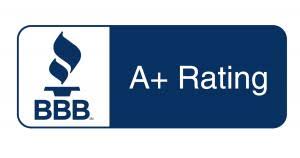REVIEW YOUR CREDIT REPORT FOR ERRORS
The filing of your bankruptcy will remain on your credit record for ten years. However, as we discussed above, this is only one of many items that affects your credit score. In order to minimize the damage that the bankruptcy has on your credit rating, you should verify that each individual line item of your credit report is properly updated as a result of the bankruptcy filing. Here are a few things to look for:
1. All debts discharged in your bankruptcy should be displayed with a zero balance. The credit report will continue to show each individual account for up to seven years from the date of the initial default. However, the report should indicate that the balance was discharged as a result of the bankruptcy and that there is no further money owed to the creditor. This is not something that you should expect the credit reporting agency to pick up on its own. In theory, the individual creditor should report the discharge of the debt as a result of the bankruptcy, but as you can imagine, this is not on the top of any creditor’s agenda. It is very likely that one or more of the creditors will still show a balance owed even after the bankruptcy filing. This will definitely hurt your credit score because the credit reporting agency will essentially pick up the debt as an ongoing obligation with a delinquent status.
2. Collection items and public records should show a zero balance. If you have a judgment entered against you prior to the bankruptcy, the underlying debt will be automatically discharged in your bankruptcy case, unless the judgment relates to some type of non-dischargeable debt, such as a child support obligation. However, most judgments relate to items such as credit cards, medical bills, or utility bills. While your credit report will continue to show that the judgment was entered, it is important to follow up to confirm that the balance is shown as zero once the bankruptcy is discharged. Again, this is not something that the credit reporting agency will necessarily do on its own. You will have to follow up with each credit reporting agency. (Remember, the elimination of the debt does not necessarily mean that the judgment lien is removed. However, there is a procedure available in most cases to remove any judgment liens that affect your homestead and even other types of property. Please be sure that we are aware of any judgments against you so that we can handle the liens while your bankruptcy case is open.)
3. As with judgments, collections items will also continue to be reported, but if the debt was discharged in your bankruptcy the collection item should show as a zero balance. While any knowledgeable lender reviewing your credit report can verify whether a debt pre-dates your bankruptcy filing, the concern here is not whether you owe the debt but rather that your credit report properly reflects the status of the account. You certainly do not want your credit score hurt because an old collection item is still appearing in error.
4. There should be no new negative reporting on discharged debts. Although there is nothing that you can do to remove the negative reporting for a particular creditor prior to the bankruptcy, no creditor is allowed to add derogatory information to your credit report subsequent to the bankruptcy filing date for a covered debt. So, for example, if you have a Sears credit card debt and you filed bankruptcy on January 1, 2010, then Sears cannot report that you were late on payments for February 2010 or any months thereafter. It is quite common for the creditors to continue to report the delinquent status of a discharged debt even after the bankruptcy filing date. Even if the balance shows as zero, any ongoing negative, monthly reporting could adversely impact your credit score. Obviously, for debts that survive the bankruptcy, such as student loans, vehicles, and mortgages, the creditor can and will report how you pay the debt after the bankruptcy filing. However, for discharged debts, the date of the bankruptcy filing should be the last date of any active reporting.
How to Fix Your Credit Report
We are often asked by our clients whether we will fix their credit report for them. Our response is that fixing your credit report does not require an attorney and is really quite simple as long as you point out in detail to the agency what you are disputing.
The following is the current contact information for the three major credit reporting agencies:Equifax
www.equifax.com
P.O. Box 105873 Atlanta, GA 30348 800-685-1111
Experian
www.experian.com
P.O. Box 2002 Allen, TX 75013-2002 888-397-3742
Trans Union
www.transunion.com
P.O. Box 1000 Chester, PA 19022 800-888-4213
Do not simply send a letter to the credit reporting agency stating that your credit report is wrong or that the bankruptcy is not properly being reflected. Your letter to the agency should specify each particular item that you are disputing and should tell the agency exactly the way you believe the item should be reported. If you have 10 different items that you think are improperly reported, you should separately list each of these 10 items.
Also, remember that sending a dispute to one credit reporting agency is not going to impact the credit reports that you have with other agencies. You will have to submit the same request to each reporting agency because you never know which report will be reviewed by a prospective creditor.
Once you submit the dispute, the credit reporting agency will contact the creditor, and if that creditor does not respond within 30 days, the agency is supposed to update the information. However, do not assume that the credit reporting agency will necessarily agree with all of the “corrections” I have suggested above. Even now, there is still some uncertainty regarding the proper way that debts should be reported as a result of a bankruptcy. There are certainly court decisions confirming some of the points that I have addressed above, but there is no universal law or ruling on the topic. Most of the items will be properly addressed if you bring them to the attention of the credit reporting agency. The more errors that are corrected, the better.
We caution all clients against hiring any outside company that claims that they will be able to fix your credit or improve your credit score. There is no “magic fix” to your credit report. If you follow all of the steps outlined above, your credit will improve. You do not need an outside company or a lawyer to address problems on your credit report. You are certainly capable of handling this on your own.







